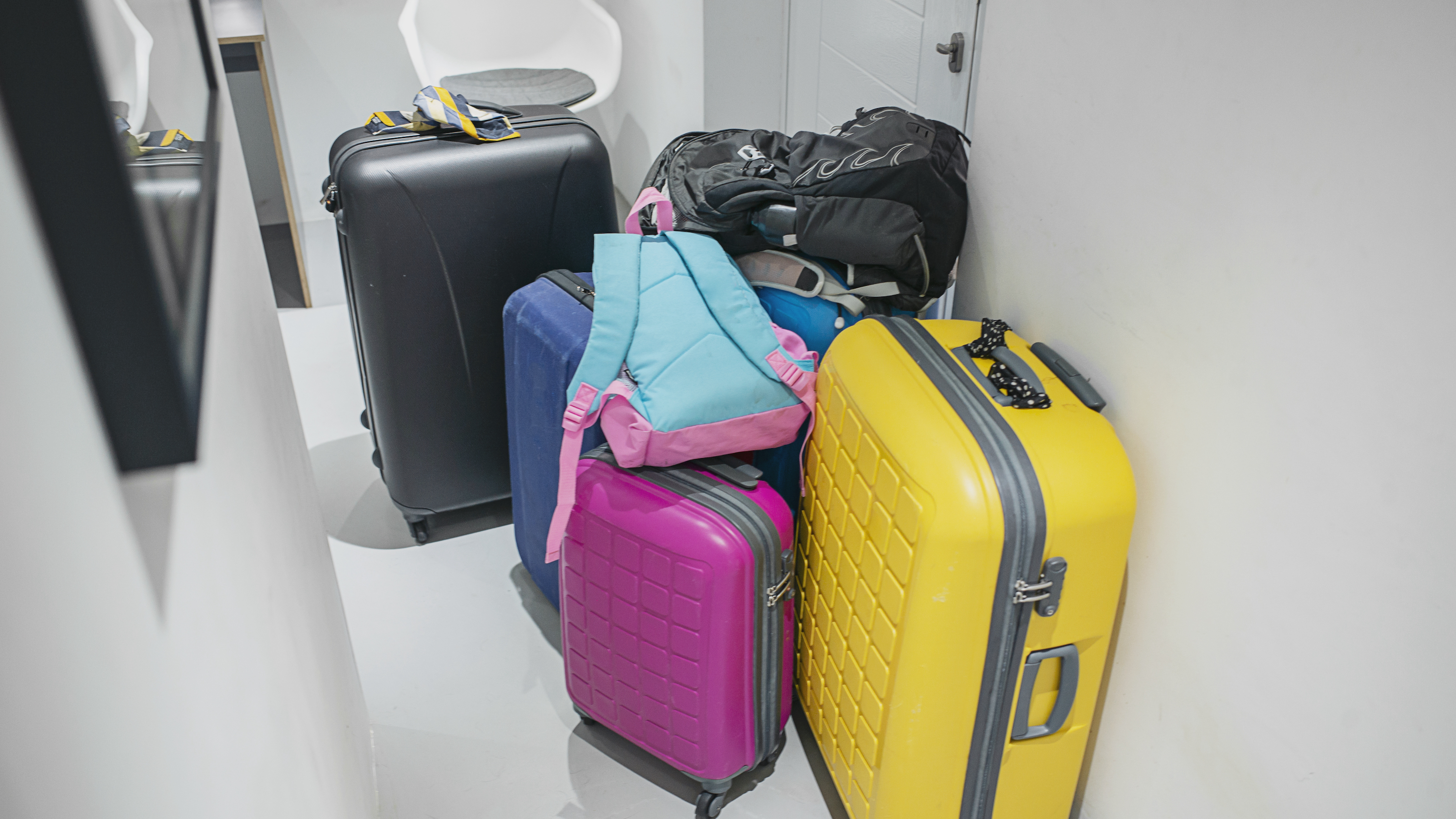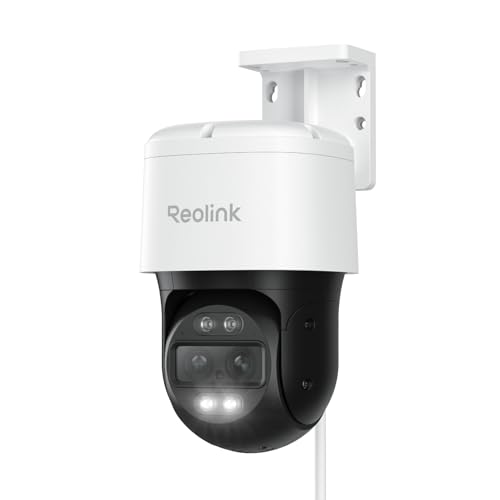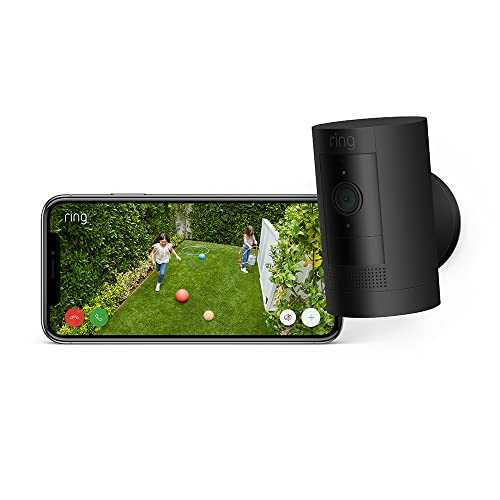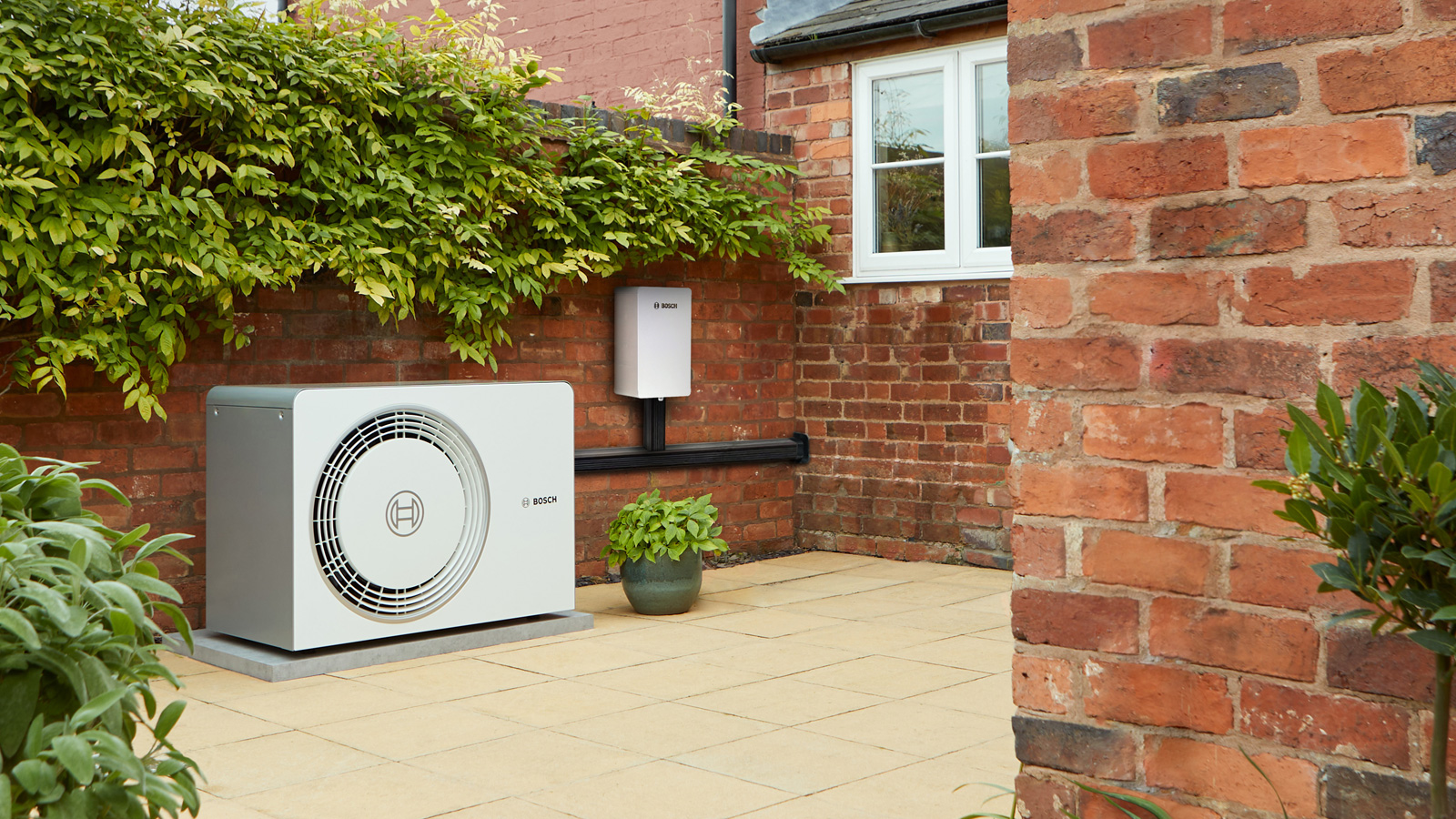Home security when you’re on holiday — the best ways to protect your property
Discover how to keep your home secure when you’re not there in our expert guide

What’s meant to be a relaxing break certainly won’t be if you’re worrying about home security when you’re on holiday. Visions of break-ins are enough to take the shine off a trip away.
There are strategies that can soothe your anxiety, though. Getting prepared with a combination of physical and smart home security systems, avoiding the signs that say “we’re not at home”, and checking your insurance can all help you enjoy a more carefree break.
In this guide, we’re sharing all the tips and strategies you need to optimise your home’s security before you go, so all you need to come back to is the unpacking.
Physical security measures
Physical measures can make your home more secure, so think window locks and door locks first. Locks should be of the type approved by your home insurer (see more on home insurance below).
For the front door, most insurers approve of five lever mortice locks like the Yale PM562 High Security BS 5 Lever Mortice Dead Lock from Amazon, which is suitable for wooden exterior doors, or key-operated multipoint locking systems.
For the windows, key-operated locks will typically be specified for accessible windows.
It’s a sound idea to have a house alarm, too. Police UK recommends opting for two visible audible alarm boxes mounted high up at the front and rear of your home.
Bring your dream home to life with expert advice, how to guides and design inspiration. Sign up for our newsletter and get two free tickets to a Homebuilding & Renovating Show near you.
Smart home technology
As well as physical measures, you can use high tech home security when you’re on holiday.
“The best systems today are integrated,” says Carlos Dhunay, security expert and owner of home security company Telcam. “This means combining smart cameras, door and window sensors, motion detectors, and smart locks, all controlled through one mobile app.”
Smart lighting is also a great way to secure your home. “Randomised or scheduled lighting patterns inside and outside the home can make it appear occupied, even when it’s not,” says Carlos. “Many homeowners make the mistake of setting lights to turn on at the same time every night, but burglars can be wise to that. Smarter lighting systems let you create irregular schedules or trigger lights based on motion, which looks a lot more like natural activity.
“Add to that video doorbells and outdoor cameras with two-way audio, and you’ve got not just a record of who comes by, but the ability to speak to them in real time wherever you are in the world,” he says.

Carlos Dhunay is a fully qualified electrician, and director of operations at Telcam, a company specialising in safety and security solutions for homes and businesses. With over 25 years of experience, he helps clients protect their properties using a blend of physical and smart technologies.
Shop security cameras with audio
Preventing signs of absence
It’s important to avoid signalling your absence on holiday. “One of the first things burglars look for is a break in routine, and the signs are usually more obvious than people realise,” says Carlos Dhunay. “A pile of letters or flyers sticking out of the letterbox, a parcel left on the step for days, or even an overgrown front lawn shouts ‘no one’s home’.”
The remedy? “Pause your regular deliveries or ask a trusted neighbour to collect your post,” advises Carlos. “Better yet, ask someone to visit daily or every other day to make it look like the home is still active.”
Also tell-tale is a lack of activity in and around the home, Carlos says. “No lights on in the evenings, bins that never move, and blinds or curtains that stay exactly the same day and night are a sure giveaway. This is where smart technology comes in useful. You can use smart plugs or home hubs to set lights on timers in various rooms and stagger them to mimic real movement. Open and close blinds remotely if your system supports it, or ask someone to vary them manually during your time away.”
It’s not just the house itself that gives away your absence. “Think about your driveway and garden,” recommends Carlos. “If a car normally comes and goes, its absence will be noticed. If you can, leave a vehicle in the driveway, or arrange for a neighbour or friend to park there occasionally. Even a wheelie bin that’s brought out and back in again can signal that someone’s around. You don’t want to go overboard and make it look staged; just create enough signs of life to avoid drawing attention.”
Local community help
If you have trustworthy neighbours, then asking if they’ll keep an eye on your house while you’re on holiday is a good idea, as noted above. Picking up post from the doormat, checking through the rooms, and putting the bins out and bringing them in again are all helpful, as it parking on your drive.
You could also join your local Neighbourhood Watch group (in England or Wales) – or set one up if it doesn’t exist yet – to take part in crime prevention activities locally and gain the benefits of others doing so, too.
Social media guide
Social media posts can be an advert for an absence from your home that’s coming up, or when you’re far away. While you might consider it as merely communicating with family and friends, you don’t have control of how a post is shared, so keep your plans away from Instagram, Facebook, and the rest. If you do want to show your snaps? Wait until you’re back at home.
And the same goes for other ways of telling people about your holiday. Beware of both public in-person conversations and mobile calls that provide the details of when your home will be empty since you can’t be sure who’s listening in.
Insurance requirements
Be aware of what’s covered under your home insurance policy while you’re on holiday. “Some policies may not cover theft damages without evidence of forced entry or if there are few security measures in place,” explains Emma Myrie, lead underwriter at Homeprotect. “Meanwhile, some insurers may require specific security measures to be in place, such as a security alarm and smart locks.”
Additionally, if you’re going on a long holiday, check with your insurer whether you need to change your cover. “Home insurance policies can vary, but most providers will have a clause stating that if your home is left empty for over 30 days, your standard home insurance won’t cover any damages beyond the 30 days,” says Emma.
“If you’re planning to go on a long trip, inform your home insurer and consider adding unoccupied home insurance to your policy to stay covered,” she advises.
As noted above, sharing the details of your holiday is a mistake — and it could also impact your insurance. “If a break-in occurs and it’s found that you’ve publicly advertised your absence, your insurer could question whether you've taken reasonable steps to protect your property, which could potentially affect a claim,” says Emma.
The signs that your home is unoccupied can also have insurance implications. “Some insurers require homeowners to take basic precautions like using timer switches on lights or having someone check in regularly,” says Emma. “Not taking these precautions could be seen by your insurer as neglecting responsibility, which might impact your ability to claim for theft or damage.”

Emma has been the lead underwriter at Homeprotect for six years. She has over 25 years of underwriting experience, having held a variety of roles within underwriting for companies such as Chubb, Home and Legacy and Sterling (now Covea).
Mistakes to avoid
There are a few more errors that you should swerve to help keep your home secure when you’re on holiday.
- Leaving keys in door or window locks is a mistake as is forgetting to use the locks or leaving windows a little open for ventilation.
- Poor shed security and garage security are a problem as they’re vulnerable to theft but can also provide items that help burglars gain access to your house. Boost them as necessary before your break.
- Leaving valuables like jewellery or laptops in plain sight of a window. The same goes for car keys if your vehicle is in the drive, garage, or parked in the street outside while you’re away. Put items under a lock and key and consider a home safe such as the Yale Large High Security Safe from Amazon, which comes with fixing bolts to secure it to a wall.
A combination of physical measures and smart solutions will optimise home security while you’re on holiday. But also extremely helpful is to get neighbours’ help, and do the same for them when they’re away.
Sarah is a freelance journalist and editor writing for websites, national newspapers, and magazines. She’s spent most of her journalistic career specialising in homes.
She loves testing the latest home appliances and products, and investigating the benefits, costs and practicalities of home improvement. She is an experienced renovator and is currently remodelling the ground floor of her new home.
She was Executive Editor of Ideal Home and has worked for Your Home and Homes & Ideas. Her work has published by numerous titles, including The Guardian, channel4.com, Houzz, Grand Designs, Homes & Gardens, House Beautiful, Homes & Antiques, Real Homes, The English Home, Period Living, Beautiful Kitchens, Good Homes and Country Homes & Interiors.



